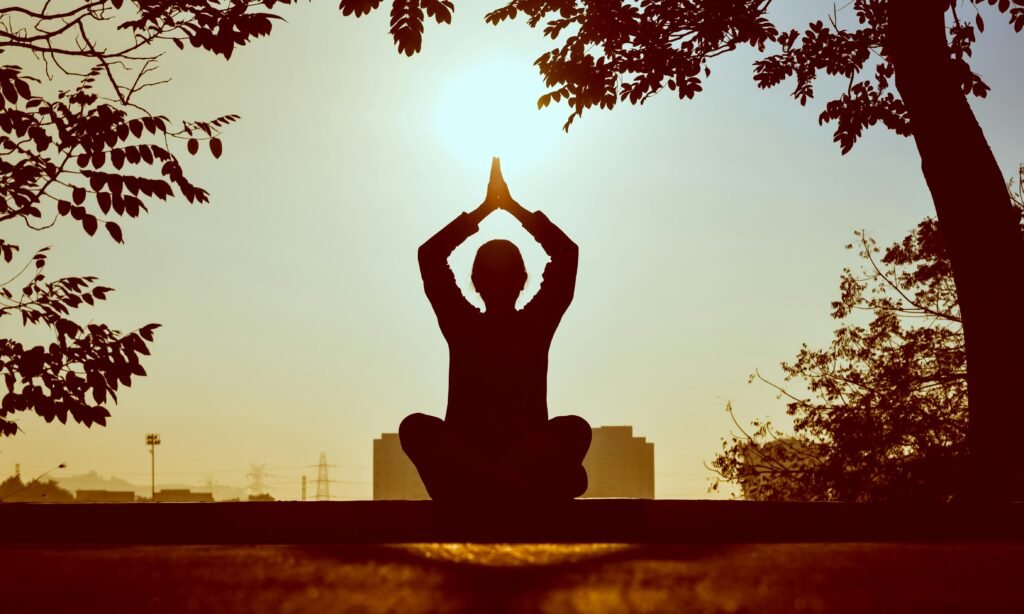In our fast-paced, modern world, maintaining mental health has become increasingly important. While there are numerous ways to nurture a healthy mind, one of the most effective and accessible methods is through regular exercise. This blog post delves into the profound impact exercise has on mental health, exploring scientific findings, personal stories, and practical tips to help you incorporate physical activity into your daily routine. By the end, you’ll understand why exercise is often referred to as nature’s antidepressant and how it can lead to a happier, healthier life.

The Connection Between Exercise and Mental Health
The Science Behind It
Exercise affects mental health through a variety of mechanisms:
- Neurotransmitter Release: Physical activity stimulates the release of neurotransmitters such as endorphins, dopamine, serotonin, and norepinephrine. These chemicals play a significant role in regulating mood and reducing feelings of depression and anxiety.
- Brain-Derived Neurotrophic Factor (BDNF): Exercise increases the production of BDNF, a protein that supports the growth and maintenance of neurons. Higher levels of BDNF are associated with improved mood, better cognitive function, and reduced risk of neurodegenerative diseases.
- Stress Hormone Regulation: Regular exercise helps regulate stress hormones like cortisol and adrenaline. Lower levels of these hormones contribute to reduced stress and anxiety.
- Improved Sleep: Exercise can improve sleep quality, which is essential for mental health. Better sleep leads to improved mood, concentration, and overall mental well-being.
Real-Life Benefits
- Reduced Symptoms of Depression: Numerous studies have shown that regular physical activity can be as effective as medication for some people in treating depression. Exercise provides a natural and accessible way to lift your mood and improve your outlook on life.
- Anxiety Relief: Exercise has been proven to reduce anxiety levels. The physical activity acts as a distraction, allowing you to find some quiet time to break out of the cycle of negative thoughts that feed anxiety.
- Enhanced Cognitive Function: Engaging in regular physical activity boosts brain function, improving memory, attention, and problem-solving skills. This is particularly important as we age and seek to maintain our cognitive abilities.
- Increased Self-Esteem and Confidence: Regular exercise can lead to physical improvements, such as weight loss and increased muscle tone, which can boost self-esteem and confidence. Feeling stronger and healthier can translate into a more positive self-image and outlook on life.
- Better Social Interaction: Many forms of exercise, such as team sports, group fitness classes, or simply going to the gym, provide opportunities for social interaction. Building social connections is crucial for mental health, reducing feelings of loneliness and providing a support network.
Types of Exercise That Benefit Mental Health
Aerobic Exercise
Aerobic exercise, also known as cardiovascular exercise, includes activities like running, cycling, swimming, and dancing. These activities elevate your heart rate and increase oxygen flow to your brain, promoting the release of mood-boosting neurotransmitters.
Strength Training
Strength training, such as lifting weights or using resistance bands, not only builds muscle but also improves mental health. It has been shown to reduce symptoms of depression and anxiety while boosting self-esteem and cognitive function.
Yoga and Mindfulness-Based Exercises
Yoga, tai chi, and other mindfulness-based exercises combine physical activity with mental focus and breathing techniques. These practices are particularly effective at reducing stress, anxiety, and depression while enhancing overall well-being.

Team Sports and Group Activities
Participating in team sports or group fitness classes offers the dual benefit of physical exercise and social interaction. Engaging with others in a shared activity can reduce feelings of isolation and boost your mood through camaraderie and support.
Outdoor Activities
Outdoor activities like hiking, gardening, or simply walking in nature can have profound effects on mental health. Being in nature reduces stress and anxiety, improves mood, and enhances overall well-being. The combination of physical activity and the natural environment is a powerful antidote to the stresses of modern life.
Practical Tips for Incorporating Exercise into Your Routine
Start Small and Build Up
If you’re new to exercise or haven’t been active for a while, it’s important to start small. Begin with short, manageable workouts and gradually increase the duration and intensity as you build your fitness level.
Find Activities You Enjoy
Exercise shouldn’t feel like a chore. Find activities that you genuinely enjoy, whether it’s dancing, hiking, swimming, or playing a sport. When you enjoy the activity, you’re more likely to stick with it.
Set Realistic Goals
Setting realistic, achievable goals can help keep you motivated. Start with small, specific goals, such as walking for 20 minutes three times a week, and gradually increase your targets as you build your fitness and confidence.
Incorporate Exercise into Your Daily Routine
Look for opportunities to incorporate physical activity into your daily routine. This could be as simple as taking the stairs instead of the elevator, walking or biking to work, or doing a quick workout during your lunch break.
Find a Workout Buddy
Having a workout buddy can provide motivation, accountability, and social interaction. Whether it’s a friend, family member, or a workout group, exercising with others can make the experience more enjoyable and help you stay committed.
Use Technology
There are numerous apps and online resources available to help you track your progress, find new workouts, and stay motivated. Using technology can make it easier to incorporate exercise into your routine and keep things interesting.
Personal Stories: How Exercise Transformed Lives
Jane’s Journey: From Anxiety to Empowerment
Jane struggled with anxiety for most of her adult life. She often felt overwhelmed and found it difficult to manage her stress. After a friend suggested she try running, Jane decided to give it a shot. She started with short runs around her neighborhood and gradually built up to longer distances. Over time, she noticed a significant reduction in her anxiety levels. The rhythmic nature of running provided a meditative experience, allowing her to clear her mind and focus on the present moment. Jane now participates in local races and has formed a running group with friends. The social interaction and sense of accomplishment have further boosted her mental health and overall well-being.
Mike’s Transformation: Battling Depression with Strength Training
Mike had been battling depression for years, struggling to find a way to improve his mood and regain his sense of purpose. On the recommendation of his therapist, he decided to try strength training. Initially, Mike felt intimidated by the gym environment, but he started with basic exercises at home. As he gained strength and confidence, he joined a local gym and began working with a trainer. The physical progress he made translated into mental resilience. Mike’s self-esteem improved, and he found a supportive community at the gym. Strength training became a crucial part of his routine, helping him manage his depression and build a more positive outlook on life.
Sarah’s Story: Finding Peace through Yoga
Sarah was a busy professional constantly juggling work and family responsibilities. She often felt stressed and overwhelmed, struggling to find a sense of balance. After attending a yoga class with a friend, Sarah discovered the calming effects of the practice. The combination of physical movement, deep breathing, and mindfulness helped her manage stress and improve her mental clarity. Sarah made yoga a regular part of her routine, attending classes several times a week. The practice provided her with a sense of peace and tranquility, allowing her to navigate the challenges of daily life with greater ease.

Overcoming Common Barriers to Exercise
Lack of Time
One of the most common barriers to exercise is a perceived lack of time. However, even short bursts of activity can be beneficial. Try incorporating mini-workouts into your day, such as a quick walk during your lunch break or a short workout at home in the morning or evening. Prioritizing exercise and scheduling it into your day can help ensure you make time for it.
Physical Limitations
If you have physical limitations or health conditions, it’s important to find exercises that are safe and appropriate for your abilities. Consult with a healthcare provider or fitness professional to develop a customized exercise plan. There are many low-impact activities, such as swimming, chair exercises, or gentle yoga, that can provide significant mental health benefits without putting undue strain on your body.
Lack of Motivation
Staying motivated to exercise can be challenging, especially if you’re experiencing mental health issues. Setting small, achievable goals, finding activities you enjoy, and seeking support from friends or workout groups can help maintain your motivation. Remember that any amount of activity is better than none, and celebrate your progress along the way.
Financial Constraints
Exercise doesn’t have to be expensive. There are many free or low-cost ways to get active, such as walking or running outdoors, doing bodyweight exercises at home, or using free online workout videos. Community centers, parks, and local organizations often offer affordable fitness classes or programs.
Conclusion: Embrace the Power of Exercise for Mental Health
Exercise is a powerful tool for improving mental health, offering a range of benefits from reducing symptoms of depression and anxiety to enhancing cognitive function and self-esteem. By understanding the connection between physical activity and mental well-being, and finding ways to incorporate exercise into your daily routine, you can take proactive steps towards a happier, healthier life.
Remember, it’s never too late to start. Whether you’re a seasoned athlete or new to exercise, every step you take towards a more active lifestyle can have a positive impact on your mental health. So lace up your sneakers, find an activity you love, and embrace the journey towards better mental well-being. Your mind and body will thank you.



